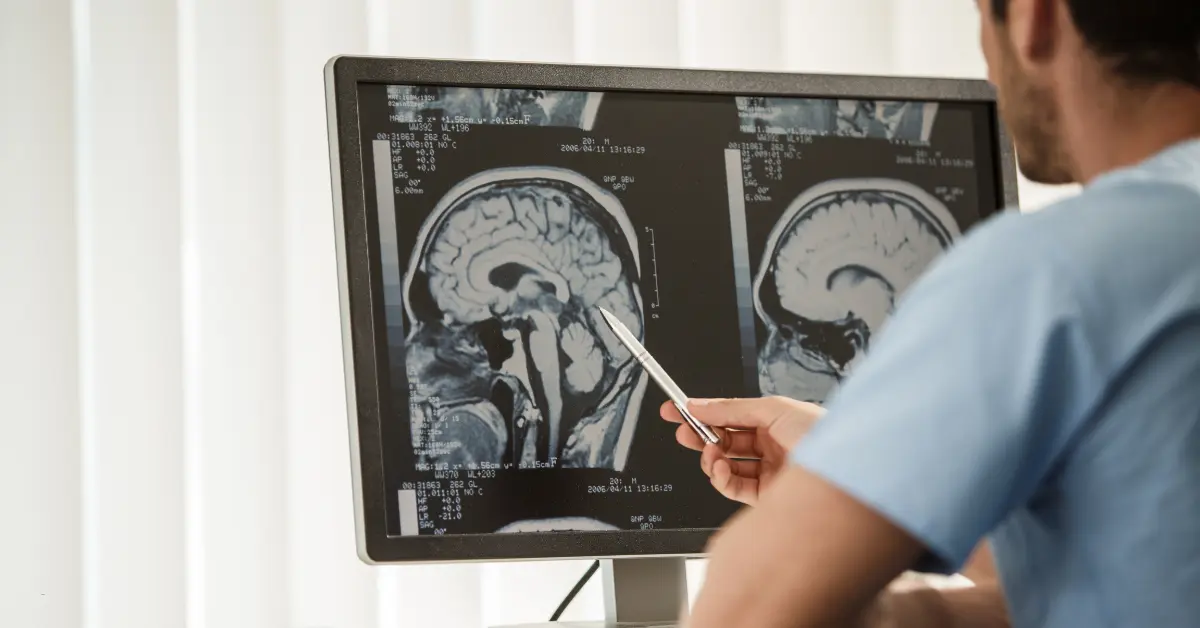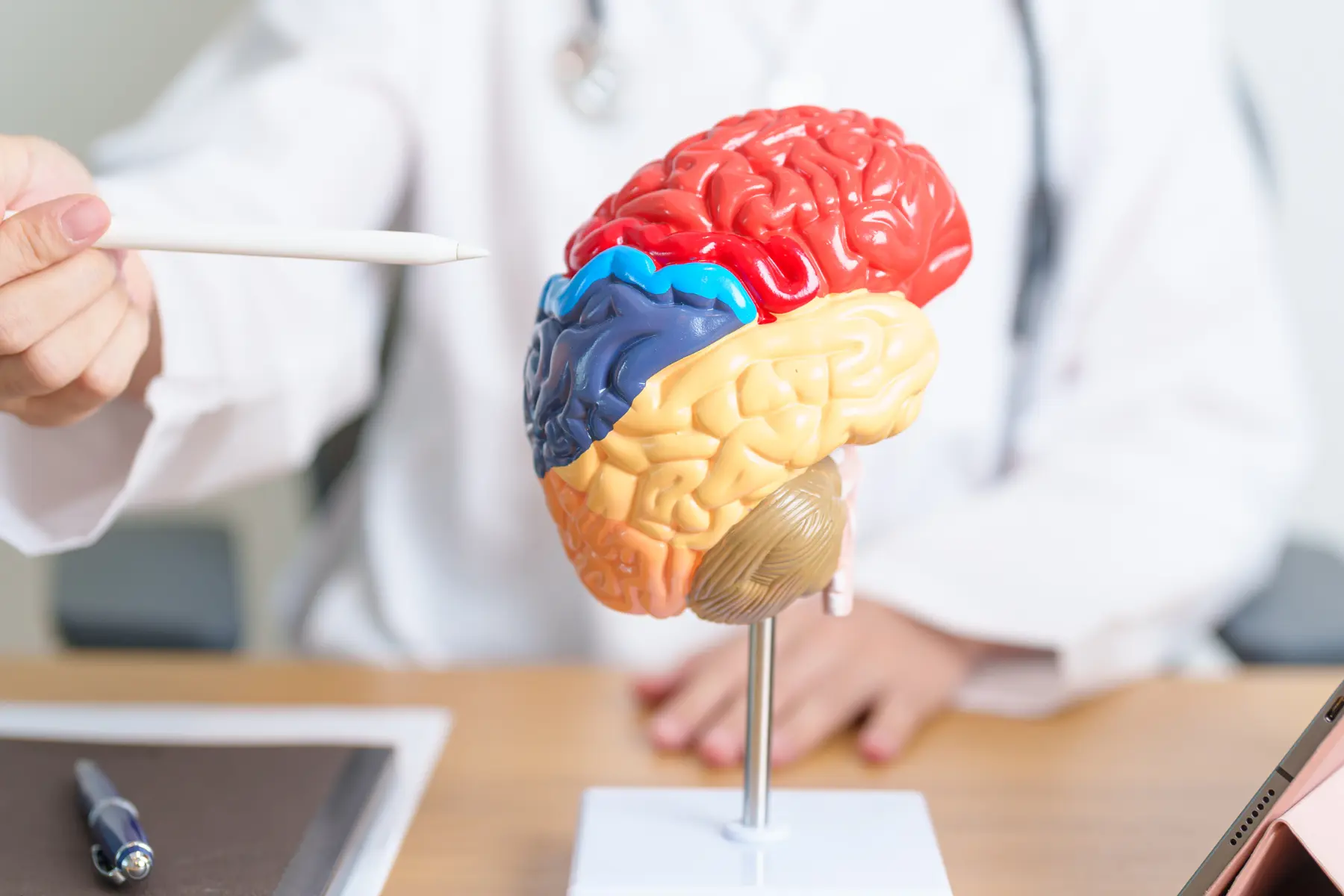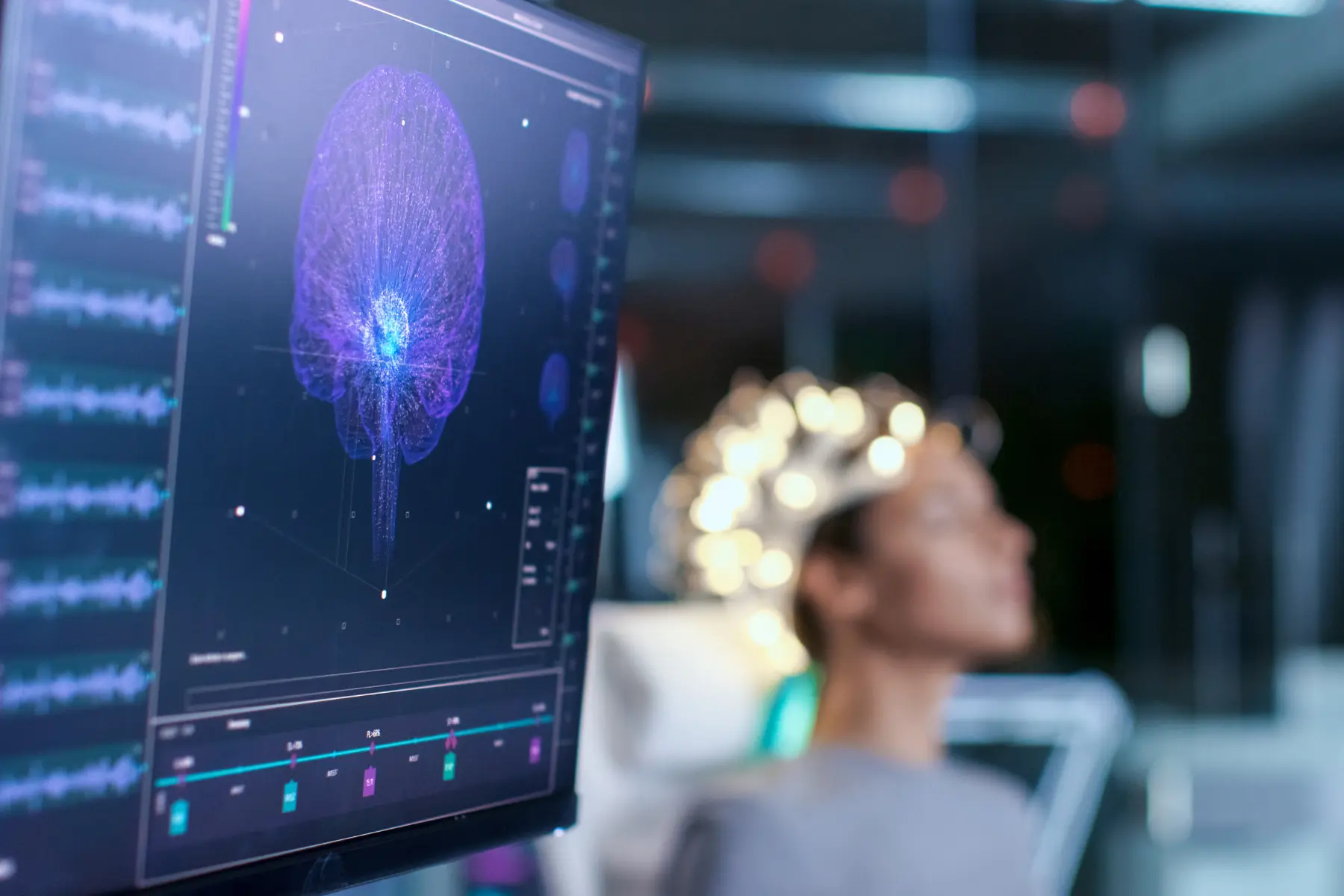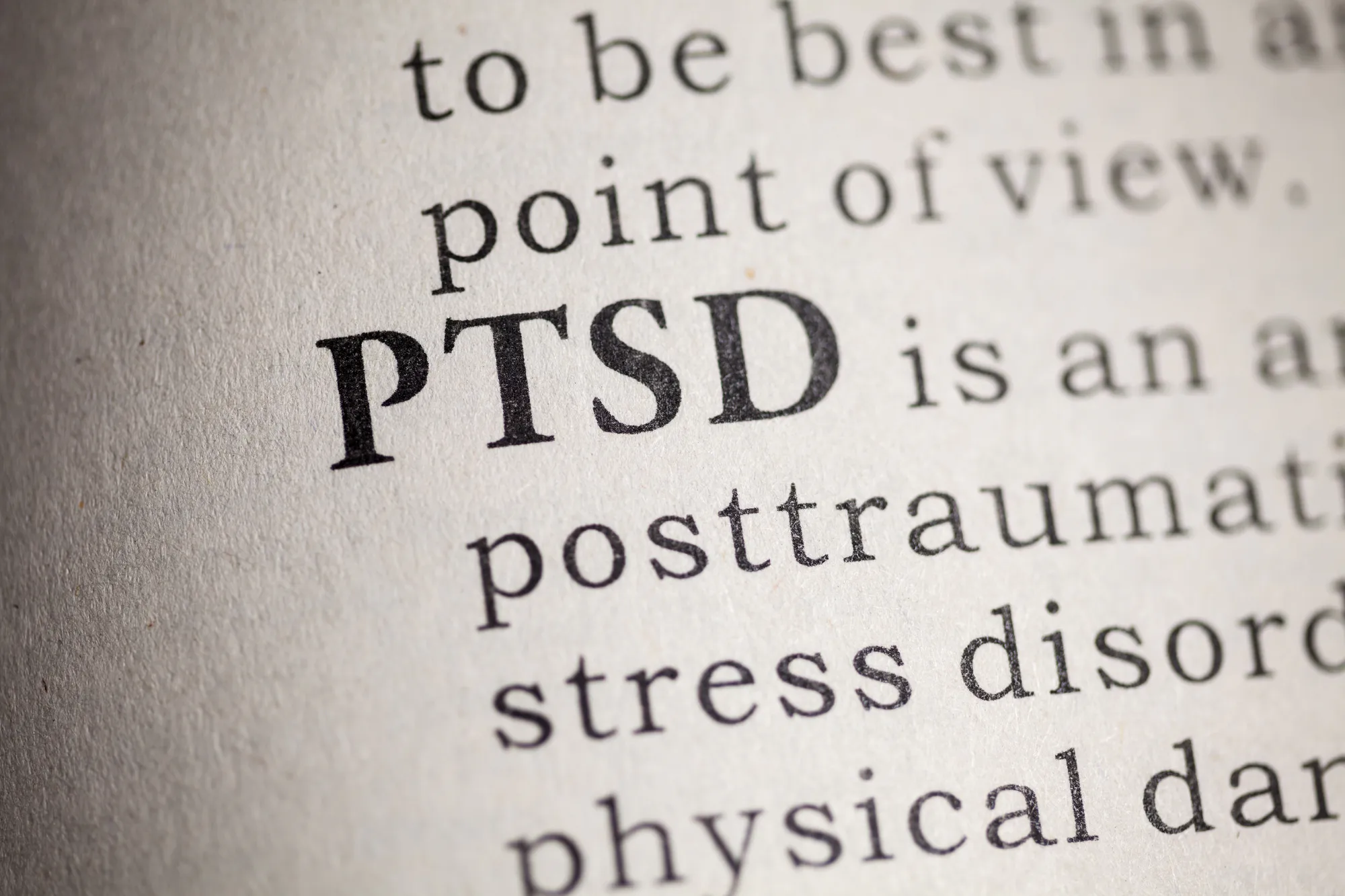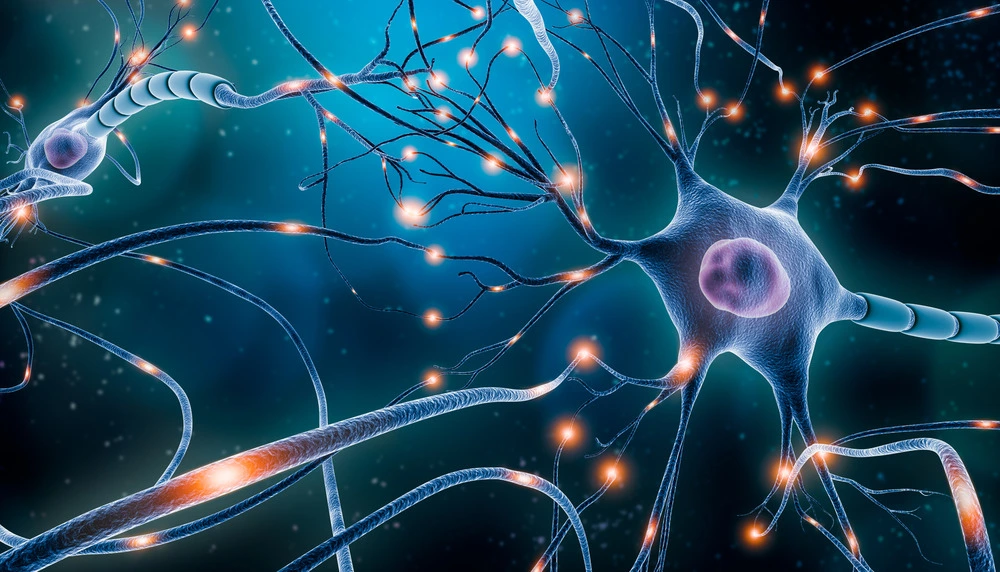Accelerated TMS therapy represents a significant advancement in the treatment of depression, offering a faster and potentially more effective alternative to traditional methods. This innovative approach involves applying repetitive magnetic pulses directly to specific areas of the brain involved in mood regulation. Unlike conventional Transcranial Magnetic Stimulation (TMS), which typically spans several weeks, accelerated TMS condenses the treatment into a shorter period, often delivering multiple sessions per day. This intensity and frequency are designed to produce quicker results, making it an appealing option for those seeking rapid relief from depressive symptoms.
The urgency of treating depression effectively cannot be overstated, given its debilitating impact on daily life and overall health. Rapid treatment interventions like accelerated TMS therapy are crucial because they can significantly reduce the duration of depressive episodes, thereby lessening the emotional, social, and economic burdens associated with long-term mental health struggles. Quick response treatments not only improve immediate outcomes but also contribute to long-term well-being, potentially preventing the recurrence of depression symptoms. This makes accelerated TMS not just an innovative treatment but a necessary evolution in the fight against depression.
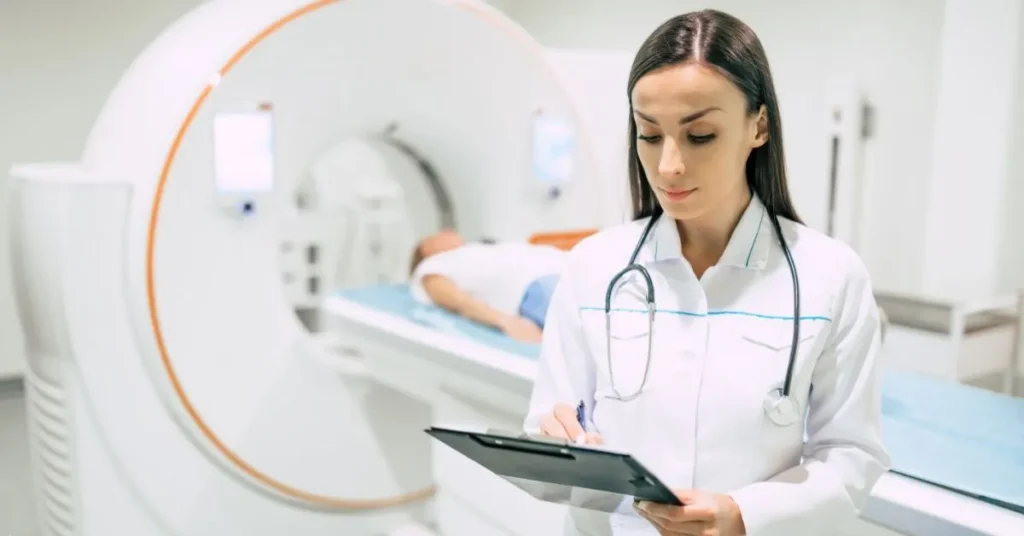
Accelerated TMS Therapy
Basics of Transcranial Magnetic Stimulation (TMS)
Transcranial Magnetic Stimulation (TMS) is a non-invasive technique that uses magnetic fields to stimulate nerve cells in the brain. It is primarily employed to treat depression by targeting the prefrontal cortex, a region known to influence mood regulation. The process involves placing an electromagnetic coil against the scalp near the forehead. This coil generates brief magnetic pulses, which pass through the skull and induce small electrical currents that stimulate brain cells. TMS has gained recognition for its ability to improve symptoms in patients who do not respond well to traditional therapies.
Differences Between Traditional and Accelerated TMS
While traditional TMS typically requires sessions spread over several weeks, accelerated TMS therapy condenses the entire treatment into a much shorter timeframe. This rapid version involves multiple daily sessions, which can lead to quicker symptom relief. The main advantage of accelerated TMS over its traditional counterpart is the speed at which it acts, potentially reducing the emotional and psychological strain associated with prolonged depressive episodes. This method is particularly beneficial for patients needing urgent care and those who have not had success with other treatment modalities.
Mechanisms Behind Accelerated TMS
Accelerated TMS operates on the same fundamental principles as traditional TMS but leverages a more intense treatment schedule to prompt faster brain changes. The theory is that by increasing the frequency of stimulation, the brain’s neuroplasticity — its ability to reorganize itself by forming new neural connections — is enhanced. This rapid stimulation can lead to quicker improvements in mood and cognitive function, which are often observable shortly after the commencement of the treatment. The accelerated method seeks to induce these beneficial changes more swiftly than would be possible with standard TMS protocols.
Typical Schedule and Intensity of Sessions
The typical schedule for accelerated TMS treatment process involves multiple sessions per day over a period of one to two weeks, contrasting sharply with the traditional approach of one session per day over four to six weeks. Each session lasts about 18-20 minutes, and patients might receive up to ten sessions in a single day. Such an intensive regimen is designed to maximize the therapy’s impact within a shorter span, making it an attractive option for individuals looking for quick results and those with schedules that cannot accommodate longer treatment durations.
Effectiveness of Accelerated TMS Therapy
Clinical Trials and Studies
Recent clinical trials and studies have rigorously tested the effectiveness of accelerated TMS therapy, providing a wealth of data supporting its use. These studies typically compare accelerated TMS to standard TMS and other depression treatments, examining various outcomes such as the speed of response and overall improvement in depressive symptoms. Findings consistently show that accelerated TMS can lead to rapid improvements, with many patients experiencing relief within days rather than weeks. This quick response is particularly vital for those suffering from severe, debilitating depression, where each day without relief can be profoundly impactful.
Success Rates and Patient Improvements
The success rates of accelerated TMS therapy are encouraging, with many clinical settings reporting high rates of symptom reduction and patient satisfaction. Patients treated with accelerated TMS often report not only a rapid decrease in depressive symptoms but also improvements in overall well-being and daily functioning. This therapy’s ability to rapidly enhance mood and cognitive function makes it a compelling choice for those who have found limited success with other treatments, providing a new hope for a better, more stable mental health state.
Factors Influencing Effectiveness
The effectiveness of accelerated TMS therapy is subject to a variety of factors, each playing a crucial role in determining the treatment’s success. Understanding these variables can help patients and clinicians tailor the approach for optimal outcomes.
- Severity and Duration of Depression: The depth and length of a patient’s depressive episodes significantly impact how they respond to accelerated TMS. Those with prolonged or particularly severe depression may require more intensive or extended sessions to achieve noticeable improvements.
- Previous Treatment History: A patient’s history with other depression treatments can influence their responsiveness to accelerated TMS. Individuals who have not responded well to medication or traditional TMS might experience different outcomes with the accelerated method.
- Individual Biological Differences: Genetic and neurobiological factors unique to each patient can affect how they respond to magnetic stimulation, making personalized treatment plans essential.
- Adjustment of Treatment Parameters: The ability to adjust the frequency and intensity of the TMS sessions allows for a highly personalized treatment approach, which can significantly enhance effectiveness.
- Skill and Experience of the Clinic: The expertise of the clinicians and the quality of the technology used in the treatment are pivotal. Clinics with more experienced staff and advanced TMS equipment are likely to achieve better patient outcomes.
These factors underscore the complex interplay between individual characteristics and treatment modalities, which must be carefully considered to maximize the benefits of accelerated TMS.
Benefits of Accelerated TMS Therapy
Faster Relief from Depressive Symptoms
One of the most compelling benefits of accelerated TMS therapy is the speed at which it can alleviate depressive symptoms. Unlike traditional treatment methods that may take weeks or even months to take effect, accelerated TMS can produce noticeable improvements in mood and cognitive functions within days. This rapid response is particularly beneficial for individuals experiencing severe depression, providing them with swift relief and the ability to resume normal activities sooner, which can be critical in preventing the downward spiral often associated with this condition.
Reduced Overall Treatment Duration
Accelerated TMS not only speeds up the relief from symptoms but also significantly shortens the overall duration of the treatment process. This efficiency is achieved through the condensed schedule of multiple sessions per day over a shorter period, which is a stark contrast to traditional methods. Such a reduction in treatment time can decrease the emotional and financial burden on patients, making it easier for them to commit to and complete the therapy. This aspect of accelerated TMS makes it an attractive option for those who desire a quicker conclusion to their treatment regimen.
Potential for Sustained Remission
Despite the rapid pace of treatment, accelerated TMS therapy does not compromise on the longevity of its effects. Many patients experience sustained remission of their depressive symptoms long after the completion of the treatment course. This enduring benefit is likely due to the intense stimulation of neural pathways, which helps to reset the brain’s mood regulation mechanisms more permanently. The potential for long-term remission offers hope to those who have struggled with chronic depression, suggesting that accelerated TMS could provide lasting improvements in mental health.
Benefits for Treatment-Resistant Depression
Accelerated TMS holds particular promise for individuals with treatment-resistant depression, who have not found relief through traditional medications and psychotherapies. By targeting the neurological underpinnings of depression more directly and intensely, accelerated TMS can break through where other treatments have failed, offering a new avenue for relief to those who have exhausted other options. The effectiveness of this therapy in such challenging cases highlights its potential as a transformative tool in mental health treatment.
SAINT TMS: A Specific Protocol
Development and Background of SAINT TMS
SAINT TMS, or Stanford Accelerated Intelligent Neuromodulation Therapy, is a refined protocol of accelerated TMS specifically designed to target neural networks involved in depressive disorders more precisely. Developed by researchers at Stanford University, SAINT TMS incorporates advanced imaging techniques to identify and stimulate exact areas of the brain associated with mood regulation. This approach builds upon the foundations of traditional TMS but optimizes the parameters for faster and more effective outcomes. The development of SAINT TMS represents a significant leap forward in applying neuromodulation therapies to treat mental health conditions.
Advanced Targeting Techniques
The core of SAINT TMS lies in its use of sophisticated targeting techniques that go beyond the capabilities of standard TMS protocols. By utilizing detailed neuroimaging data, SAINT TMS can pinpoint specific brain circuits that differ in individuals with depression. This precision allows for a more focused and intense stimulation, increasing the likelihood of a successful treatment outcome. The targeting process is highly personalized, tailored to the unique neurological profile of each patient, which enhances both the efficacy and safety of the treatment.
Comparison with Other Accelerated TMS Approaches
When compared with other accelerated TMS protocols, SAINT TMS stands out due to its higher precision and tailored approach. While all forms of accelerated TMS aim to speed up the treatment process and enhance patient outcomes, SAINT TMS’s use of detailed imaging and individualized treatment maps provides a more refined method. This not only improves the direct stimulation of relevant brain areas but also minimizes the stimulation of non-targeted regions, reducing the risk of side effects. This specificity makes SAINT TMS a particularly appealing option for those seeking the most advanced and effective depression treatment available.

Practical Aspects of Seeking Accelerated TMS Therapy
Finding Specialized Clinics
Selecting the right clinic is a fundamental step for anyone considering accelerated TMS therapy. The effectiveness and safety of the treatment can largely depend on the facility and the professionals administering it.
- Specialization in TMS: Look for clinics that focus specifically on TMS treatments. A clinic that specializes is likely to be more updated on the latest protocols and advancements in TMS technology.
- Track Record of Success: It’s beneficial to choose a clinic with a solid history of successful patient outcomes. Reputable clinics should have data or statistics available to demonstrate their effectiveness.
- Transparency of Credentials: Ensure that the clinic openly shares information about the qualifications and credentials of their medical staff. Knowing that board-certified psychiatrists or neurologists will conduct the therapy can provide significant peace of mind.
- Detailed Treatment Protocols: The clinic should provide clear and detailed explanations of their treatment protocols. Understanding what the treatment entails and how it is performed can help set realistic expectations.
- Patient Testimonials: Reviewing testimonials and reviews from previous patients can offer insights into the clinic’s approach and the effectiveness of their treatments. Patient experiences can highlight aspects of the clinic’s service, from the scheduling process to the treatment environment and follow-up care.
These factors are integral to ensuring that the clinic chosen can provide the most safe and effective accelerated TMS therapy experience possible.
Understanding Treatment Costs
The cost of accelerated TMS can vary widely based on the specific protocol used, the number of sessions required, and geographic location. Since this is a relatively new treatment, some insurance plans may not fully cover the costs. Patients need to communicate with their insurance providers to understand what coverage options are available. Additionally, many clinics offer financing plans or sliding scale fees to help manage the financial burden, making this innovative treatment more accessible to a broader range of patients.
What to Expect During Treatment
When undergoing accelerated TMS therapy, patients can expect multiple daily sessions that each last about 20 minutes. During treatment, individuals will sit in a comfortable chair, and a specialized device will be positioned near their head to deliver magnetic pulses. These sessions are non-invasive and generally painless, though some patients might experience mild discomfort or a tapping sensation on the scalp. Between sessions, patients can rest and are usually able to read or listen to music, making the process as comfortable as possible.
Post-Treatment Care and Follow-Up
After completing a course of accelerated TMS, ongoing follow-up is essential to monitor the patient’s progress and manage any recurring symptoms. Clinics typically schedule regular check-ins to assess the long-term effectiveness of the treatment and decide if additional sessions are necessary. It’s also common for clinicians to recommend complementary therapies, such as psychotherapy or medication, to maximize the benefits of TMS and support overall mental health.
Broader Context of Depression Treatments
Overview of Current Depression Therapies
The landscape of depression treatments encompasses a range of options from traditional psychotherapies and pharmaceuticals to innovative neuromodulation techniques like TMS. Each treatment avenue offers unique advantages depending on individual patient needs. Medications can quickly adjust chemical imbalances, whereas psychotherapy aims to resolve underlying psychological triggers. TMS, particularly accelerated TMS therapy, has emerged as a crucial alternative for those who do not achieve sufficient relief from conventional methods, providing a new layer of hope through advanced technology.
Positioning Accelerated TMS in Mental Health Care
In mental health care, accelerated TMS therapy occupies a vital role, especially for patients experiencing treatment-resistant depression. Its rapid deployment and capability to produce quick results position it as an essential option for urgent care scenarios and chronic cases where other therapies have failed. This treatment is increasingly viewed as a cornerstone within integrated care strategies, combining medical and psychological therapies to enhance overall effectiveness and patient well-being.
Non-Invasive Nature and Minimal Side Effects
One of the principal benefits of TMS therapy is its non-invasive mechanism and the minimal side effects associated with it, which starkly contrast with the often severe side effects of antidepressants. Accelerated TMS therapy avoids the systemic side effects typical of pharmacological treatments by using magnetic pulses to directly target the brain areas involved in mood regulation, making it an appealing choice for patients looking for safer treatment alternatives.
Targeting Specific Brain Regions
Accelerated TMS therapy enhances treatment precision by focusing magnetic stimulation on specific brain regions known to influence mood and emotional regulation. This targeted approach is integral to how accelerated TMS therapy works; it optimizes the impact on neural activity associated with depression while minimizing interactions with unaffected brain areas. Such focused treatment not only improves symptom management but also reduces the likelihood of side effects, enhancing patient comfort and therapy acceptance.
Looking ahead, the potential for accelerated TMS therapy in mental health treatment is immense. As clinical understanding deepens and technology advances, we can expect broader applications of this treatment, potentially extending beyond depression to other neurological and psychiatric disorders. The ongoing development and refinement of protocols like SAINT TMS for depression will likely drive this expansion, offering more precise and personalized treatment options. This could redefine how mental health professionals approach the treatment of not only depression but also a wider array of mental health conditions.

The integration of specialized accelerated TMS therapy clinics into the healthcare landscape is crucial. These clinics play a pivotal role in providing access to this cutting-edge therapy, equipped with the latest technology and staffed by experts trained in the latest TMS techniques. As more healthcare providers recognize the benefits of accelerated TMS therapy, the availability and accessibility of this treatment are expected to increase, making it a more common option for patients worldwide.



